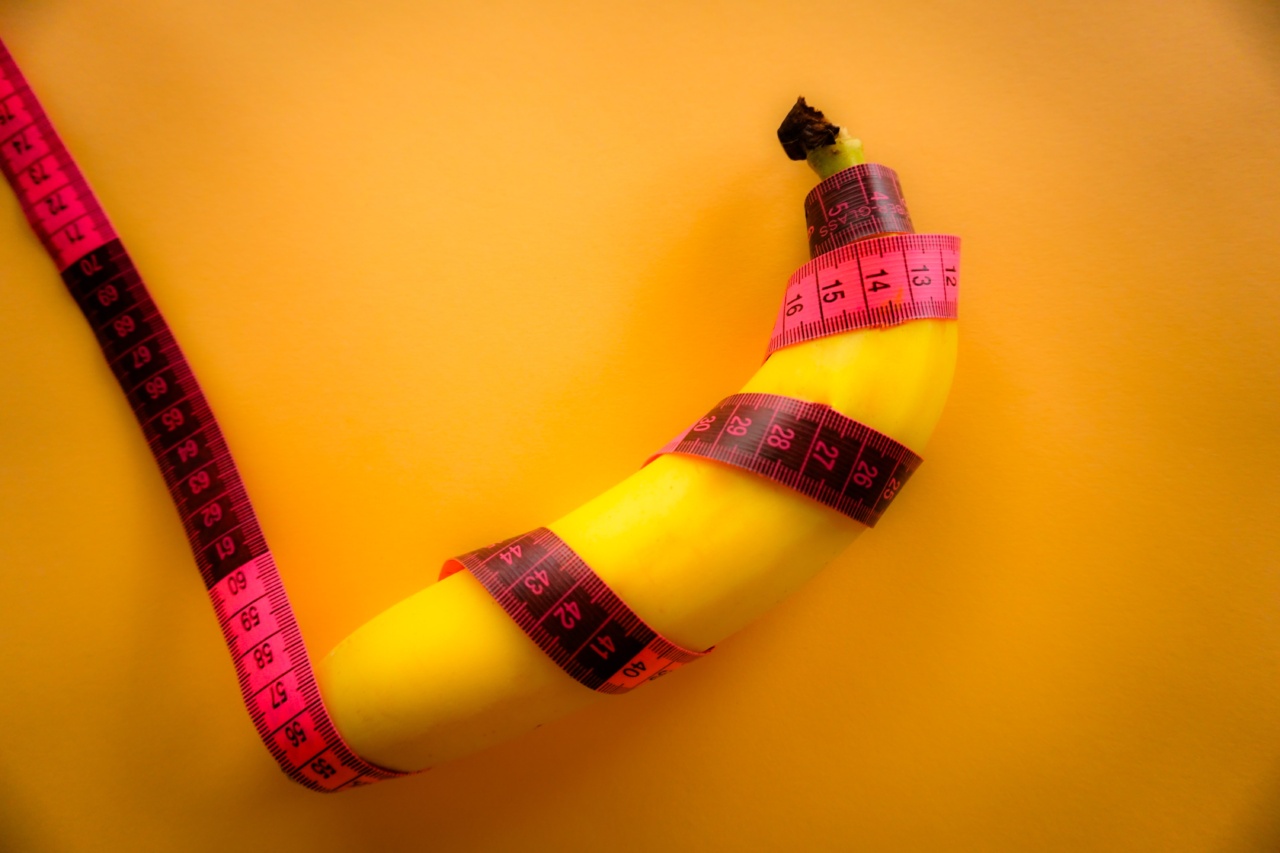It is no secret that penis size is a topic that has long intrigued and concerned men around the world. Many factors can influence the size of the penis, including genetics, hormones, and overall health.
In recent years, researchers have begun investigating the role that age and the microflora of the body may play in determining penis size. This article explores the fascinating connection between age, microflora, and penis size.
The Impact of Age on Penis Size
As men age, they may notice changes in various aspects of their bodies, including their reproductive organs. It is well-established that the penis tends to undergo some changes as a man gets older.
One of the primary factors that contribute to changes in penis size with age is the decline in hormone production. Testosterone, the male sex hormone, plays a crucial role in maintaining penile health and function.
As men age, their testosterone levels gradually decline, which can result in a decrease in penis size.
In addition to hormonal changes, age-related changes in blood flow can also affect penis size. Reduced blood flow to the penile tissues can result in shrinkage and decreased firmness of the penis.
The Role of Microflora in Penis Size
Scientists are now uncovering the potential influence of the microflora, the vast collection of microorganisms that live in and on our bodies, on penis size.
Recent research suggests that the composition of the microflora may play a role in determining the size of the penis.
The microflora of the body, particularly in the genital region, is essential for maintaining overall health and preventing infections.
Imbalances in the microflora, known as dysbiosis, have been linked to numerous health issues, including urinary tract infections and sexually transmitted infections.
It is hypothesized that dysbiosis in the genital microflora could also impact penis size. Imbalances in the microflora can lead to inflammation and tissue damage, which may contribute to a reduction in penis size.
More research is needed to fully understand the complex relationship between microflora and penis size.
Preventing Microflora Imbalances
Maintaining a healthy microflora is vital for overall health, including the health of the penis. There are several steps men can take to promote a balanced microflora:.
1. Practice good hygiene
Regularly washing the genital area with a gentle cleanser and warm water can help remove excess bacteria and prevent the overgrowth of harmful microorganisms.
2. Avoid douching
Douching disrupts the natural balance of the microflora and can increase the risk of infections.
3. Choose underwear wisely
Opt for breathable underwear made from natural fibers, such as cotton, which allows for better airflow and reduces moisture buildup that can promote the growth of harmful bacteria.
4. Eat a balanced diet
A nutritious diet rich in fruits, vegetables, whole grains, and lean proteins helps support a healthy microflora.
5. Limit antibiotic use
While antibiotics are necessary for treating certain infections, overusing them can disrupt the balance of the microflora. Only take antibiotics when prescribed by a healthcare professional.
The Importance of Seeking Medical Advice
If a man is concerned about changes in his penis size or experiences any other symptoms related to penile health, it is crucial to seek medical advice.
A healthcare professional can provide a comprehensive evaluation, offer guidance, and address any underlying issues that may be impacting penis size.
Conclusion
The relationship between age, microflora, and penis size is a complex and fascinating topic.
While age-related hormonal changes and reduced blood flow appear to contribute to changes in penis size, the influence of microflora imbalances is still being explored. Taking steps to maintain a healthy microflora, such as practicing good hygiene and eating a balanced diet, can help support overall penile health.
However, it is essential to consult a healthcare professional for any concerns or symptoms related to penis size.































